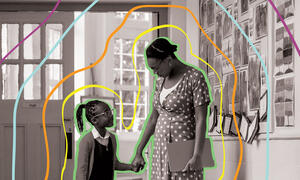Decarceration Begins With School Discipline Reform



Analyzing whose perspective is centered and whose is erased in significant conversations and spheres of influence paints a clear picture—an inconvenient truth— about the pervasiveness of systemic racism. And it’s particularly important that Black children see themselves represented in these narratives—especially in those spaces where Black people are intentionally rendered invisible. These LFJ resources highlight what’s at stake in the choices we make.



When it comes to investing in racial justice in education, we believe that the South is the best place to start. If you’re an educator, parent or caregiver, or community member living and working in Alabama, Florida, Georgia, Louisiana or Mississippi, we’ll mail you a free introductory package of our resources when you join our community and subscribe to our magazine.